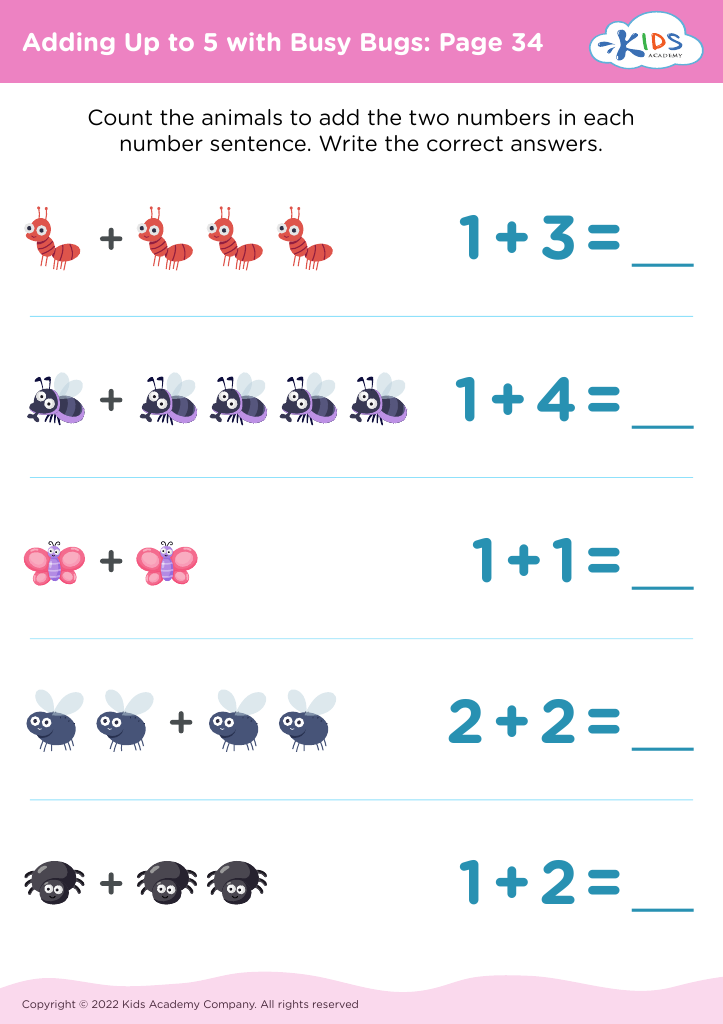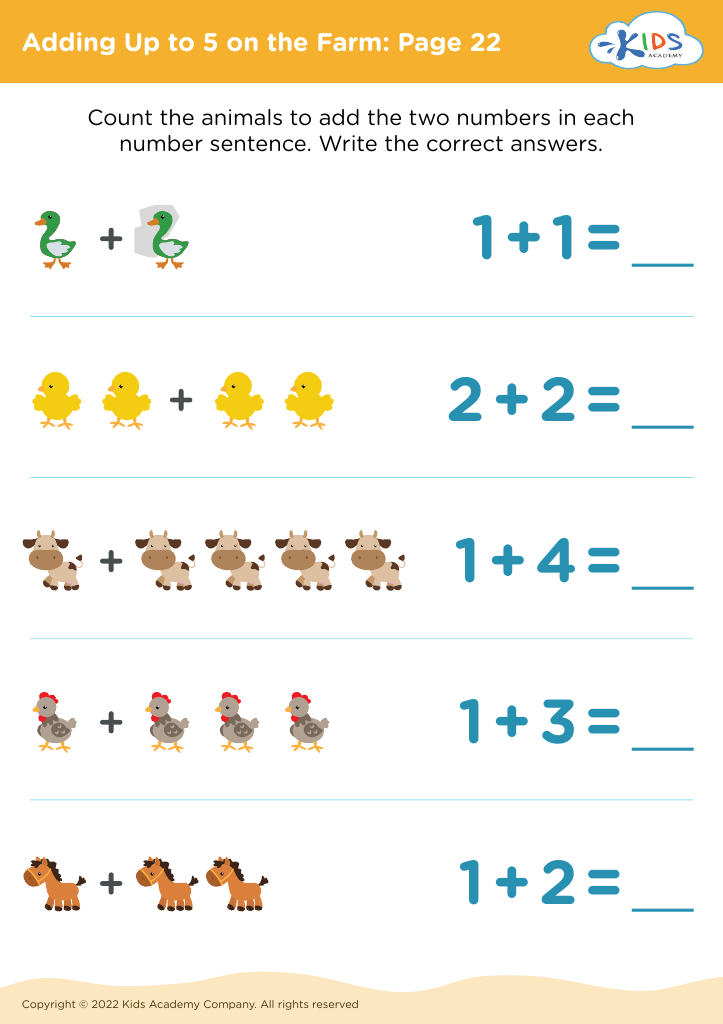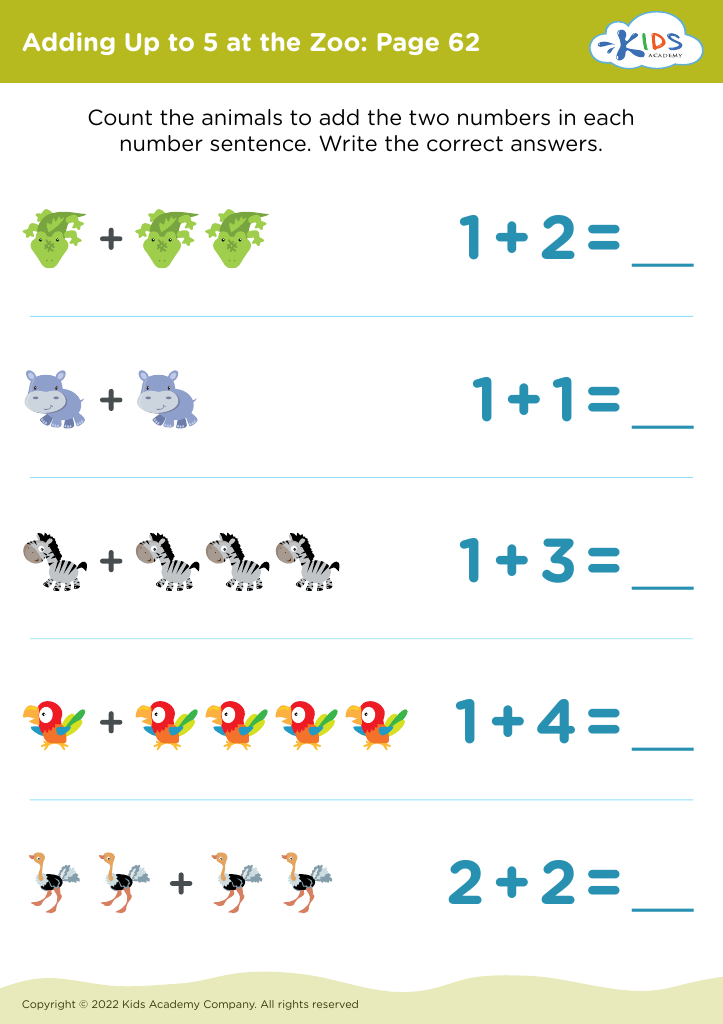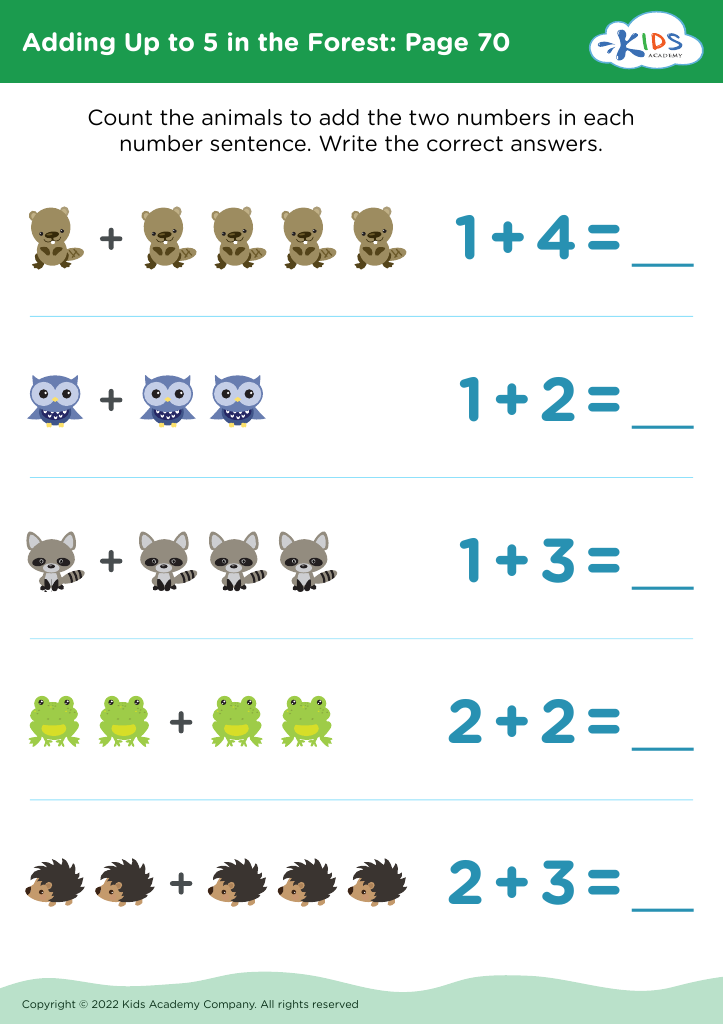Enhancing focus Addition Worksheets for Ages 4-8
4 filtered results
-
From - To
Enhance your child's focus and addition skills with our specially designed worksheets for ages 4-8. These engaging and educational resources help young learners concentrate while mastering basic math concepts. Each worksheet is thoughtfully crafted with vibrant visuals, fun themes, and progressive challenges tailored to this age group. By combining interest-driven activities with fundamental addition practice, our worksheets not only build arithmetic proficiency but also improve attention span and cognitive development. Suitable for both classroom use and at-home practice, our focus-enhancing addition worksheets pave the way for academic success and a lifelong love for learning. Download now and watch your child thrive!
Enhancing focus addition for children aged 4-8 is crucial for several reasons. At this developmental stage, children are building foundational skills that are essential for lifelong learning and success. One key aspect is their emerging numeracy skills. By strengthening their ability to focus while learning addition, children develop better mathematical understanding, which is critical for progressing to more complex concepts in later grades.
Improved focus also translates to better engagement and retention in other subjects. A child who learns to concentrate on adding numbers can more effectively apply similar concentration skills when learning to read, write, or undertake science projects. For parents and teachers, this means fostering a skill that benefits overall academic performance.
Additionally, the ability to focus contributes to the development of perseverance and problem-solving skills. When children practice addition attentively, they are honing their patience and ability to tackle challenges—qualities that are valuable both inside and outside the classroom.
Finally, strong focus and addition skills can build a child’s confidence. Mastery of these skills leads to a sense of achievement, making children more eager to learn. In turn, confident, focused learners often exhibit better behavior and social interaction, positively influencing their academic journey and relationships. Overall, the benefits of enhancing focus addition in young children are varied and far-reaching, making it an important priority in early childhood education.





















